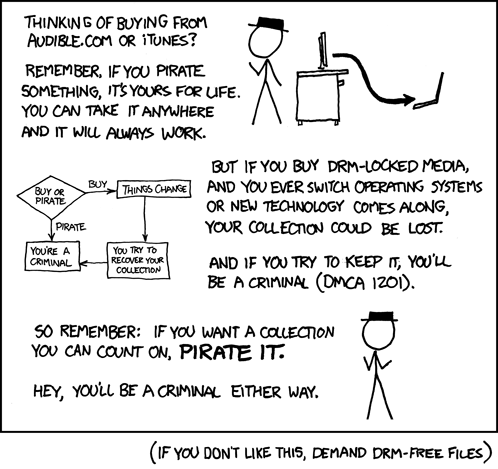from the perhaps,-but... dept
You may have recently heard that story of a bank robber who, rather ingeniously, used Craigslist to
create a diversion so he could get away with his crime. He put up a message, asking a bunch of people to show up for construction work, and told them what to wear, very specifically. He had them gather near the bank he was planning to rob -- and then wore the same outfit. After robbing the bank, police and security then saw a mob of folks all matching the same basic description as the bank robber. So far, the guy seems to have gotten away with the crime.
However, it's only a matter of time until others start thinking about ways to make use of social media for crime. This isn't to blame social media at all (though, expect the press -- and possibly politicians -- to falsely focus on the tech), as it's just a tool. But it is worth thinking about how criminals might use these technologies, if we want to think about ways to prevent the worst abuses. Jeremy Wagstaff has an interesting post where he wonders
if Twitter will become a source of info for scammers and criminals, who gather the info people reveal about themselves to use in a crime. He's riffing off of a David Weinberger blog post, which jokes about how the opposite of the Do Not Disturb sign in many hotels says something along the lines of "Make Up My Room Now." As Weingberg
astutely notes, some could interpret this as actually saying: "I'm Out, So This Would Be a Good to Rob Me, Especially If You Are Squeamish about Violence."
Wagstaff wonders if the same is true about status updates on Twitter, Facebook and other social sites -- and someone announcing that they're away from home opens up an opportunity to a burglar to break in. To some extent, I would imagine that could be true -- and I'm almost positive we'll eventually read some story somewhere about a criminal using data on Twitter to do something -- but it's difficult to see how most Twitter messages are really
that revealing. It's not that difficult for a potential burglar to just canvas a house and see that the inhabitants go to work every day, and they get the same benefit, totally unrelated to the status message. Also, I'd argue that what a status message leaves out may turn out to be more important than what is put in. For example, my Twitter status might note that I'm traveling and in Chicago right now... but might not mention the fact that a friend, who spent a few years in the army, is housesitting for me and watching my pets. Anyone who relies solely on the Twitter message to decide where to rob, might be in for a bit of a surprise.
In some ways, this whole thing is similar to the "fear" when answering machines first showed up. There were reports that warned people not to say "we're not in right now" as people were told that criminals might use this to figure out who to rob. Instead, they were told to say "we can't get to the phone right now," as a transparent sort of hedge. Of course, the whole thing was silly. It was hardly an efficient way for criminals to find out who to rob, and the actual risk was quite low. The same thing is likely true of any "threat" of criminals using Twitter.
Filed Under: criminals, fraud, presence, social media
Companies: twitter


